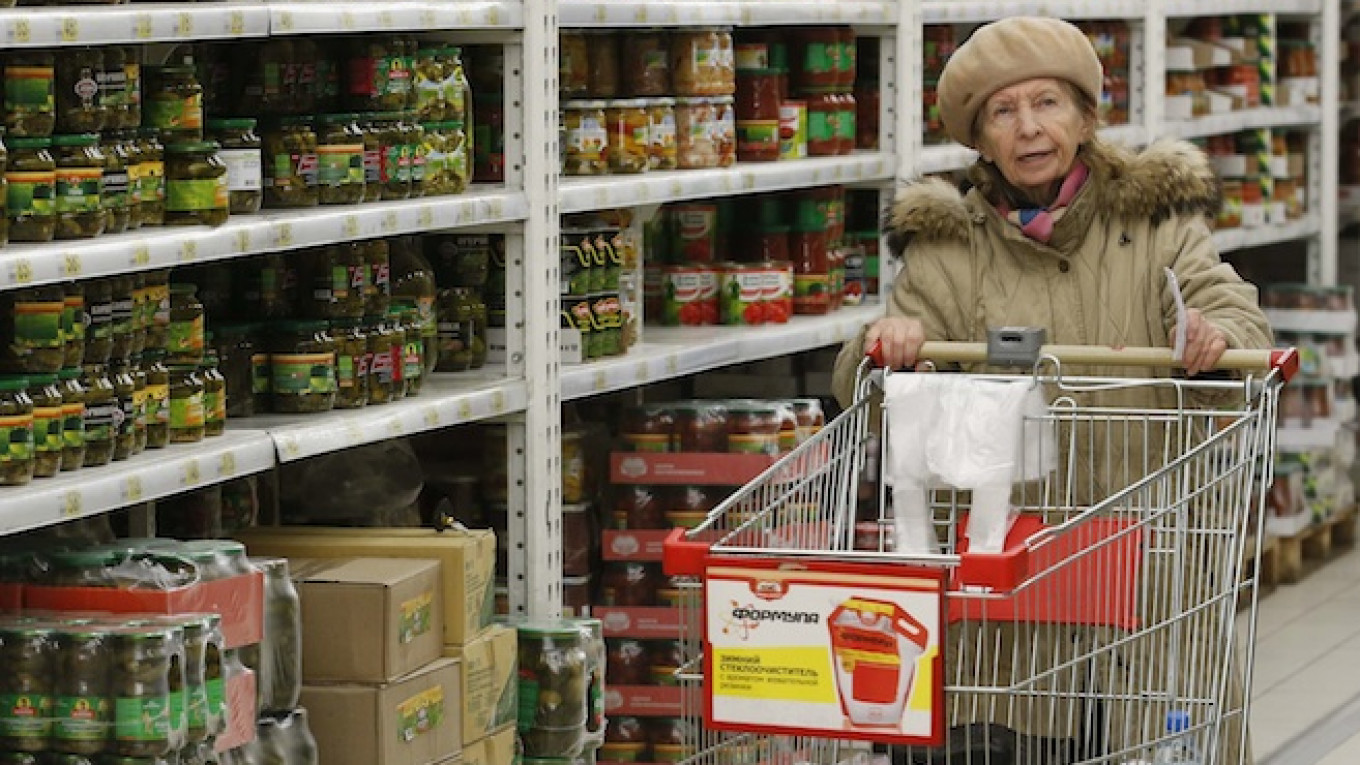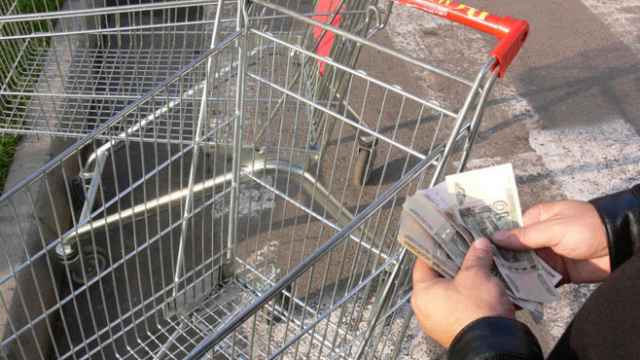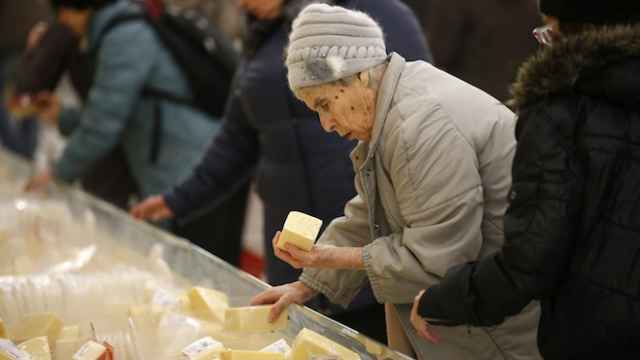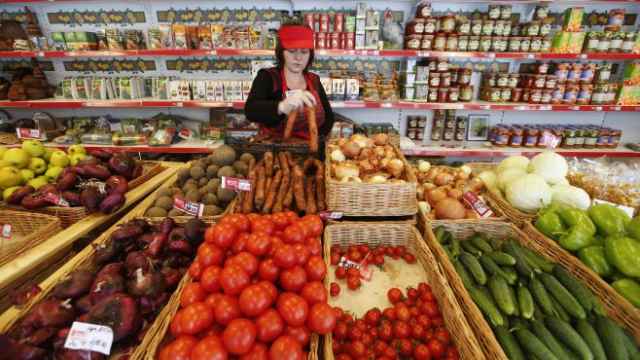For Boris Lisitsyn, Russia's financial crisis means less meat, cheese and sausage — hardships the 86-year-old says won't kill him anytime soon.
But for him and the millions of pensioners who make up about a third of Russia's population, rising prices are also spurring anger over declining living standards, threatening a pool of support President Vladimir Putin cannot afford to lose.
Russia's pensioners were once seen as "people we just needed to support" one government official said. But with women able to retire at 55 and men at 60, and healthcare improving, many are becoming more forceful in their demands.
It's a trend not lost on Putin, whose role as a protector of stability, social conservatism and generous state spending has won a strong following among the elderly. Their loyalty is now being tested by a financial crisis triggered by low oil prices and Western sanctions imposed on Russia over Ukraine.
The Russian leader has dismissed any thought of cutting social spending, telling the government this month: "First of all, whatever we do and whatever plans we make, we must ensure the fulfillment of our social commitments."
But even with those commitments met, and increases in benefits promised, life for millions is becoming difficult.
"In the 1990s there was nothing in the shops but fridges were full," Lisitsyn said, referring to the collapse of the Soviet Union which shattered supply lines and the command economy, forcing many to rely on home-grown produce.
"Now it's the other way round — there's everything in the shops but fridges are all but empty," said the former military officer and radio factory worker.
Sitting at a small formica table in the kitchen of his two-room flat in a Moscow suburb, Lisitsyn said he struggles to keep up with price rises for food and medicine, saying sometimes he walks into a shop "only to walk out again."
Prices Leap
Prices leaped last year in Russia as the ruble crashed 40 percent against the dollar, dragged lower by plunging prices for the country's key export oil and Western sanctions that have all but shut companies and banks out of global capital markets.
Annual inflation reached 11.4 percent in December, according to official statistics, with meat up by more than 20 percent and the retail price of sugar rising 40 percent.
The average monthly pension stood at 10,029 rubles ($148 at today's exchange rate) in 2014, the Federal Statistics Service said.
Pensioners say one of the biggest blows from the crisis is the rising price for medicine, most of which are imported. For Nina Frolova, 84, about a fifth of her 15,000-ruble pension goes on medicine. Other outgoings include 1,500 rubles a month on her subsidized Moscow flat, 150-200 on electricity and 350 rubles on the telephone bill.
What hurts most, Lisitsyn says, is the sharp deterioration in his way of life.
Once he felt quite well-off, now he describes watching in horror as a woman living in one of Moscow's most desirable areas, known as Rublyovka, recounts her daily life on a morning television show.
"She threw down a black rug and ... scattered something on the rug. They were diamonds, thousands of them. And she walked over them barefoot and said: 'This is the best kind of massage'," Lisitsyn said.
"I just couldn't understand it. Why would someone do that? ... At the top they live in a different reality."
"Abominable" Living Conditions
The extent of the wealth gap is most obvious far from Russia's big cities such as Moscow.
Eduard Karyukhin, director of Dobroe Delo, a non-governmental group, said many of Russia's more than 43.3 million pensioners live in rural areas, where mortality rates are high and living conditions "abominable." They make up the majority of the 20 percent at high risk from the crisis, he said.
The government has promised action, but it comes at a cost.
Officials have hinted at possible price caps and Putin has promised to index pensions to inflation, although senior ministers have cast doubt over whether this is affordable.
Russia's State Pension Fund is projected to spend around 7.6 trillion rubles, equivalent to 10 percent of gross domestic product, this year. More than a third of the amount (2.8 trillion rubles) will be funded from budget transfers that swallow up 18 percent of the federal budget.
On the quiet, officials may be trying to minimize costs. This year, a new program offers points for every year worked beyond retirement age to go towards a higher pension. Putin has also called for a push to keep Russia's elderly active.
That may backfire.
Karyukhin said elderly people were now helping each other, and they "may gradually gain strength and defend their rights."
"There are concerns among the authorities that they need to try to regulate this," he said.
A Message from The Moscow Times:
Dear readers,
We are facing unprecedented challenges. Russia's Prosecutor General's Office has designated The Moscow Times as an "undesirable" organization, criminalizing our work and putting our staff at risk of prosecution. This follows our earlier unjust labeling as a "foreign agent."
These actions are direct attempts to silence independent journalism in Russia. The authorities claim our work "discredits the decisions of the Russian leadership." We see things differently: we strive to provide accurate, unbiased reporting on Russia.
We, the journalists of The Moscow Times, refuse to be silenced. But to continue our work, we need your help.
Your support, no matter how small, makes a world of difference. If you can, please support us monthly starting from just $2. It's quick to set up, and every contribution makes a significant impact.
By supporting The Moscow Times, you're defending open, independent journalism in the face of repression. Thank you for standing with us.
Remind me later.






